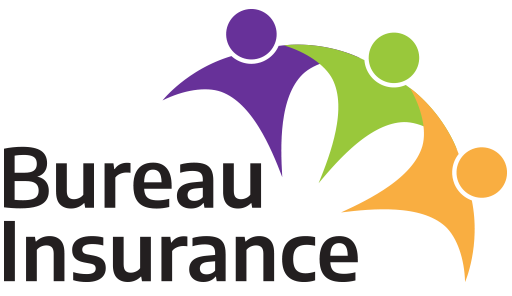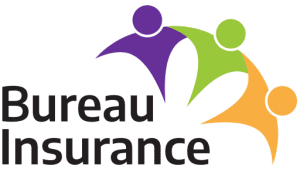We know the only true test of insurance coverage comes at claim time, when you’ll experience the tangible benefits of our fast, efficient claims service and support.
To assist us in achieving the most efficient claims process possible, we have set out the following guidelines for your information:
Notification of Claims
You should report all losses or incidents which may result in a claim as soon as possible after the event to our office. Late reporting can cause the Insurer to incur additional costs, prejudice the efforts of the Insurer to negotiate an equitable claim settlement or negatively impact their efforts to recover from negligent third parties.
The first notification should include the following information:
- Description of incident
- Date and time of incident
- Location (including street names) where circumstances originated
- Estimate of loss
- Action being taken to minimise loss
- Whether police or emergency services were called
- Original copies of any communications received
Loss Minimisation
You should take action to protect property from any further damage, however, you should take no action to repair the damage until instructed by our office or a Loss Adjuster.
Own Property Damage
You should report all losses immediately to our office and we will advise you on the appropriate steps to follow and arrange a Loss Adjuster if required. Retain any damaged property and other evidence for inspection by Insurers. Record all costs in dealing with the event.
Burglary, Theft and Money
If loss is due to theft/burglary or involves the loss of money, you should contact the police immediately and keep details of the police officer and station notified. You should obtain a copy of the Police Report and report the loss to our office as soon as possible.
Motor Vehicle
Windscreen – All windscreen/glass only repair claims can be completed without a claim form. Contact our office for the policy number, Insurer name and approved windscreen repairer, who you will need to contact to organise a time for the repair or replacement to be undertaken. Generally there is no excess payable for windscreens (our office will confirm this with you) and the provision of the policy number and Insurer name to the repairer will be sufficient for the repairer to forward the invoice directly to the Insurer for payment (do not pay the repairer yourself).
Own Vehicle Damage – You should report all accidents involving your motor vehicle immediately to our office. If the vehicle is not driveable, it may be towed to the closet repairer capable of rectifying the damage. Our office will advise you if an assessor is required to inspect the vehicle.
The claim processing is accelerated if a completed claim form can be left at the repairer’s premise before the visit by the Loss Adjuster. If there are any delays in obtaining repair authorisation or necessary services, please contact our office.
Usually your policy excess is paid to the repairer upon collection of the repaired vehicle. If the damage is due to the negligence of an identifiable third party, your Insurer will normally endeavour to recover your excess from them. Where a third party is involved, under no circumstances should any admission of liability be made. And no further direct actions with Third Parties should be undertaken without instruction from the Insurer.
Liability
General and Products Occurrences – If you become aware of any occurrence which might give rise to a claim under any liability policy, or upon the receipt of any letter, summons or notification of claim, immediately notify our office and send correspondence to us. Always retain any evidence, whether by way of damaged property, contract conditions, correspondence, witness statements that will help the Insurers establish where responsibility should rest. No admission of liability should be made to any party in any form, nor any offer of compensation or explanation for the incident. If pressured, you should say that the matter has been referred for advice and you will be in touch.
Marine Transits
Imported Goods and Local NZ Transits – On delivery examine the goods or packaging and record details of any visible damage on the delivery note. Obtain a copy of the EWP (examined without prejudice) note. It indicates a claim on the shippers/carriers may follow and should give an accurate description of any damage. If loss or damage is found to the package contents, contact the shipping company or their carrier and request attendance at a joint survey to examine the goods and then confirm the verbal acknowledgement in writing. If the goods are subject to duty, contact the Customs Department to request they attend the survey to examine the goods. Report the loss to our office and we will arrange for a loss adjuster to be appointed if necessary. Keep all damaged packaging for inspection.
Even if a Customs Agent lodges a claim on your behalf, it is still your responsibility to ensure that the claim is in fact lodged. There is usually a “time bar” applicable to all marine transits specified on the Bill of Lading or carriers conditions of carriage. Make sure any claim is lodged within the time frame.
Under the current Carriage of Goods Act, carriers are liable for the first $2,000 per unit of goods for transits within NZ (unless special arrangements are made).
Exported Goods – If a major claim/loss is suspected, report the loss immediately to our office and we will arrange for a loss adjuster to be appointed if necessary. Complete a claim form and provide supporting documents which usually include the following:
- Shipping Invoice – providing a description and statement of the value of goods
- Consignment or Bill of Lading (original copies) – providing evidence of shipment and condition, weight and quantity of goods
- Pro Forma Claim and/or Valued Claim – holding the party or parties considered negligent liable for the loss or damage
- Reply to Pro Forma Claim and/or Valued Claim and copies of all other correspondence to and from carriers
- “Examined Without Prejudice” (EWP) Note on Carriers’ Receipt – shows the shipping company, without admitting liability, acknowledge that loss or damage to goods or packaging occurred before the goods left the wharf
- Carriers Receipt – shows what loss or damage has been caused by the carrier
The Carrier should have recorded any damage or loss discovered at the time of accepting the goods and the Insured should have recorded any damage or loss discovered at the time of taking delivery.
Corporate Travel
Should you require assistance overseas or have a medical emergency, please contact your Insurer’s travel assistance provider phone line. They will advise you on how to proceed and can arrange for hospital expenses to be charged directly to the Insurer.
Other claims for lost or damaged baggage can be made on return to New Zealand – contact our office for a travel claim form. Please keep all receipts or replacement purchase invoices.

